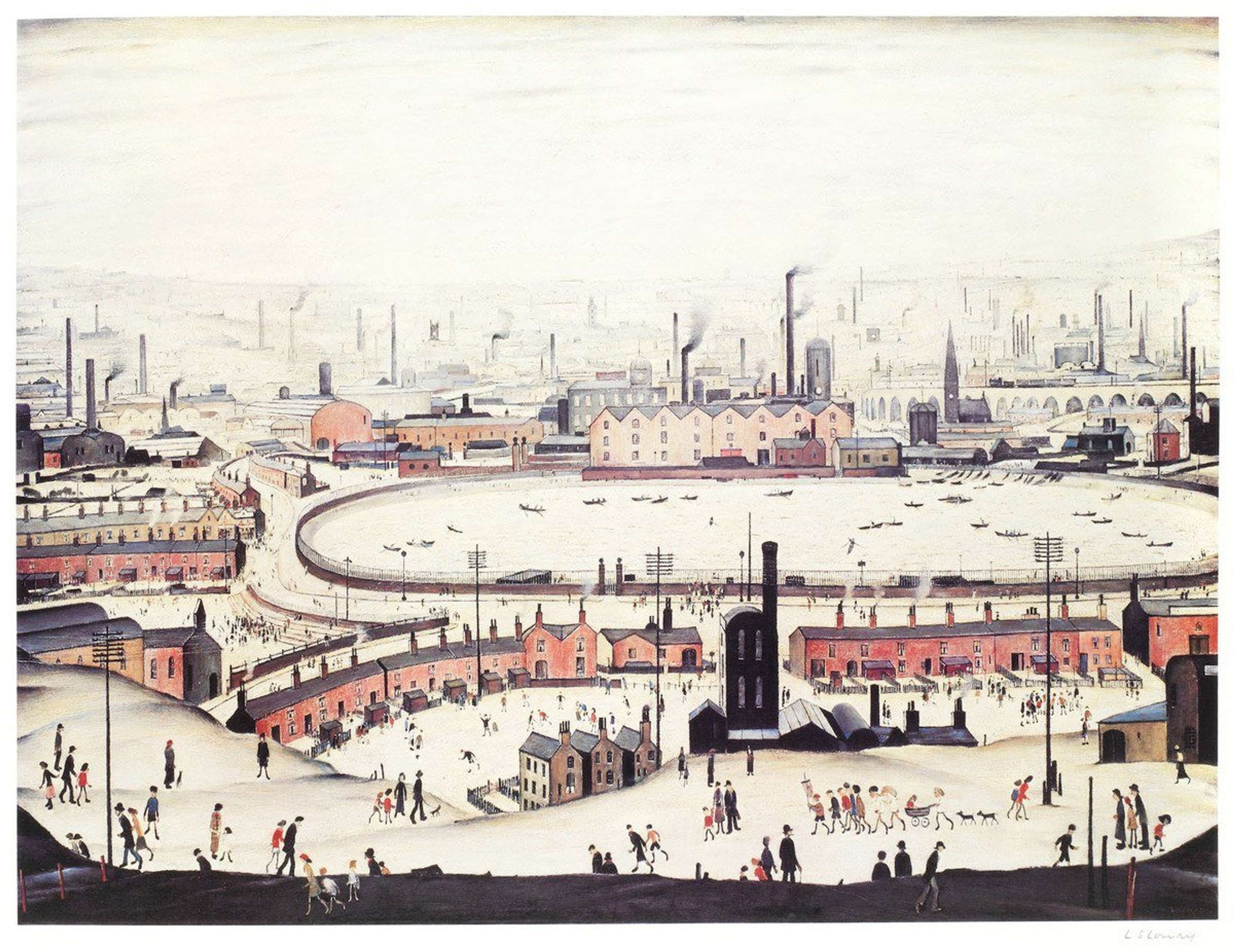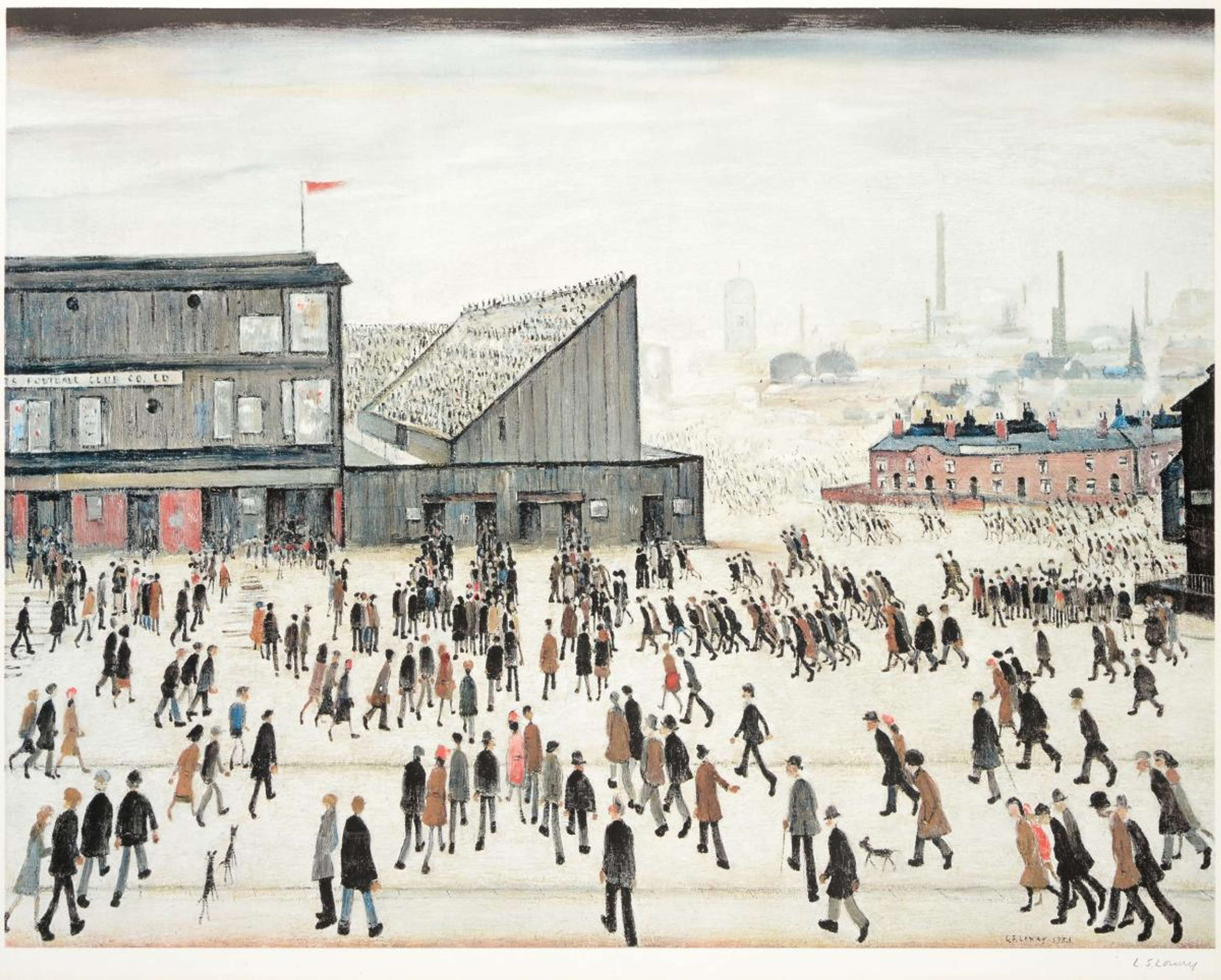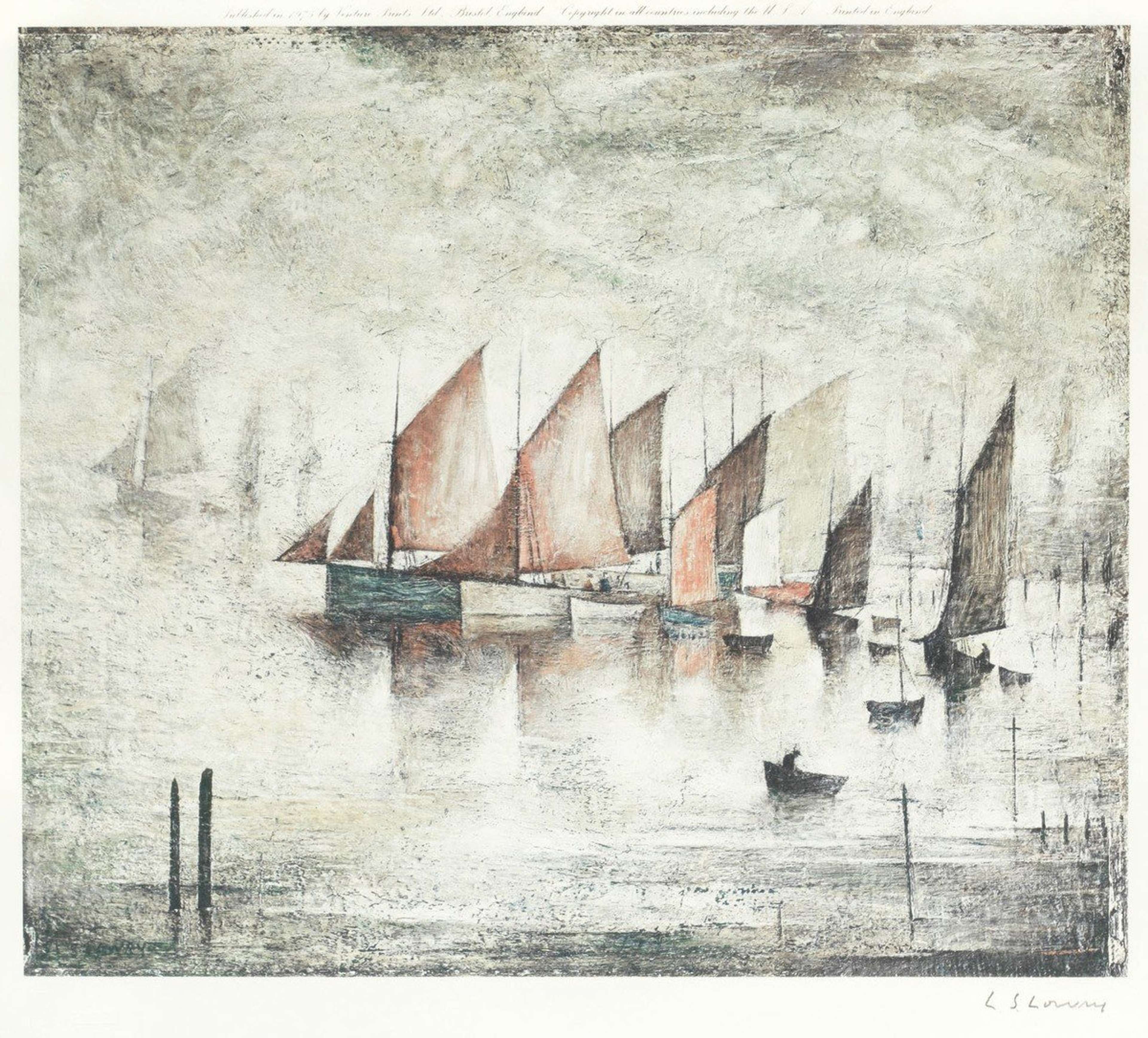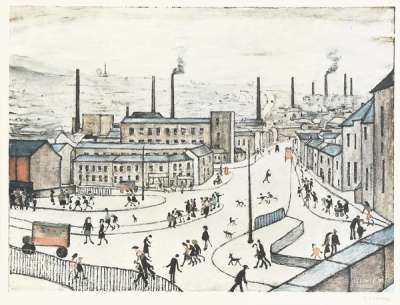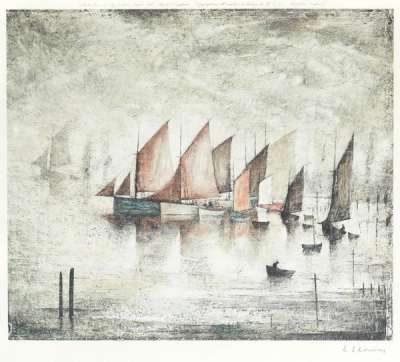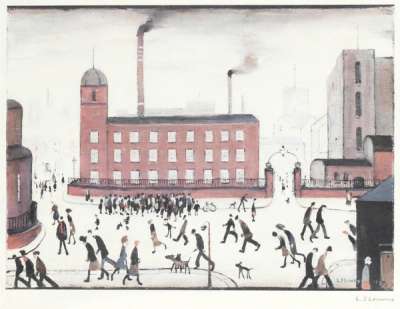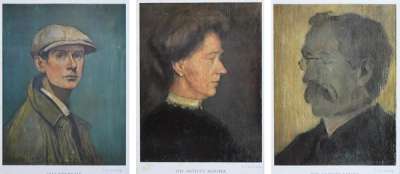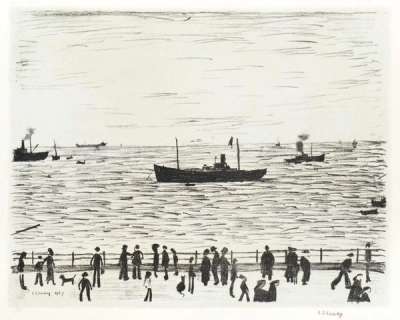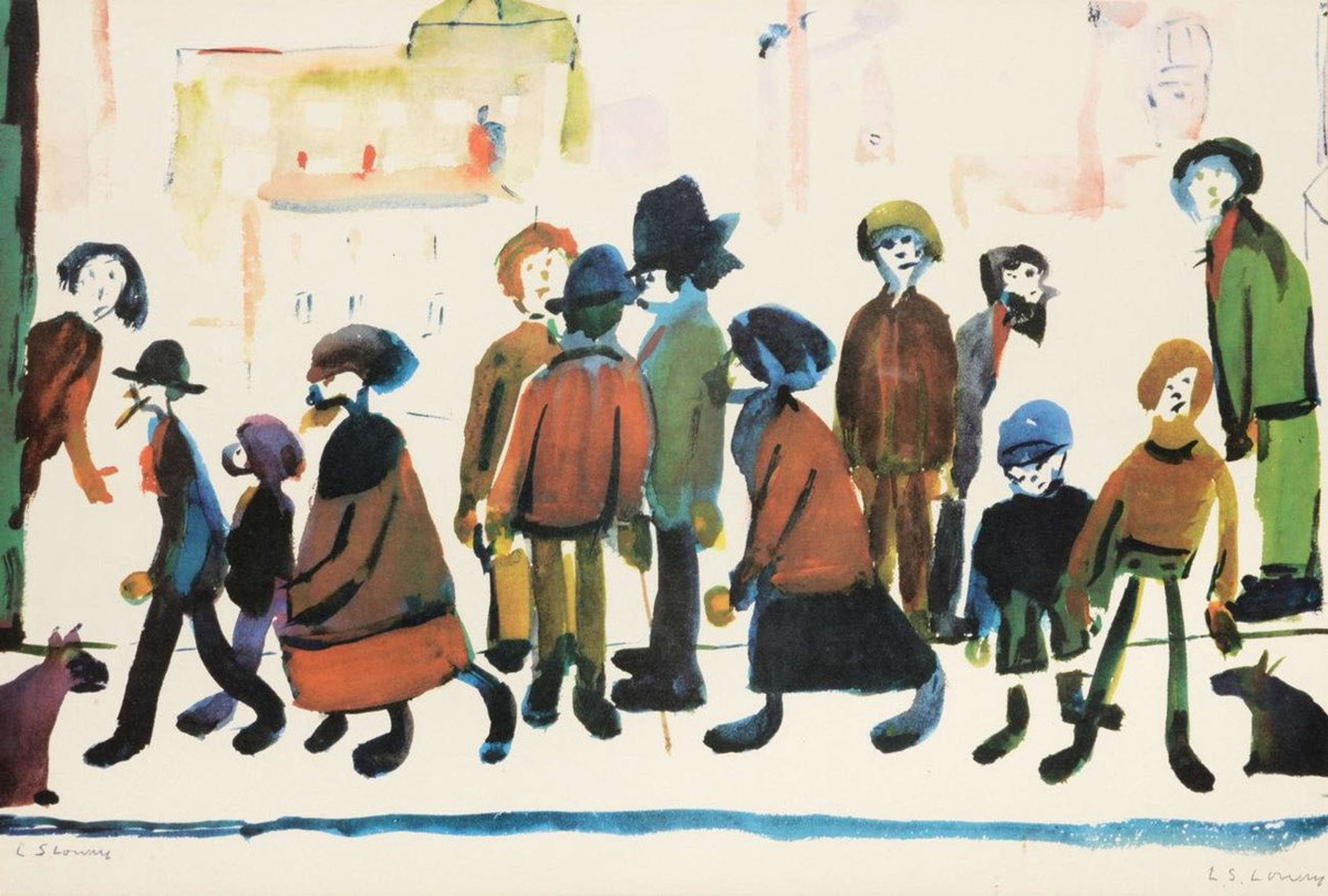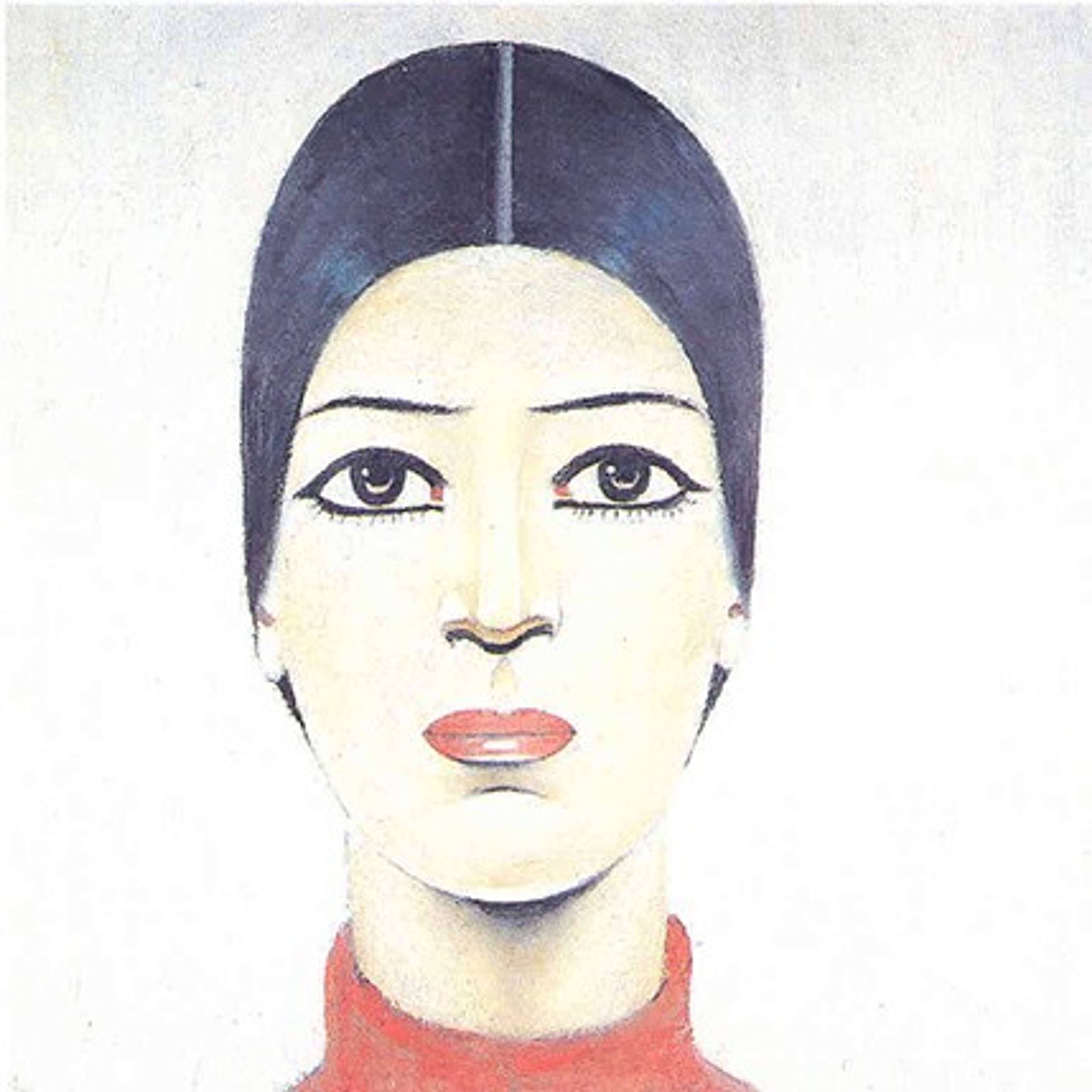 Portrait Of Ann © L. S. Lowry 1957
Portrait Of Ann © L. S. Lowry 1957
L S Lowry
73 works
The art of L. S. Lowry was deeply connected to his life. Born in 1887 in Stretford, Greater Manchester, the county’s surrounding factories, football stadiums and people would inspire his greatest paintings. Here we take a deep dive into seven works that tell the story of his life and times.
Read MyArtBroker's LS Lowry Investment Guide In 2024.
Read our L. S. Lowry Market Watch to discover Lowry's top 5 most investable prints.
Lowry grew up in a middle-class family in the leafy suburbs of Manchester. Financial troubles, however, forced him to drop out of school at 16 to find work. At the age of 18, he began to take evening classes in painting and drawing at the Manchester Municipal College of Art. His tutor was the French Impressionist painter Adolphe Valette, a master of city scenes. “I cannot overestimate his effect on me,” Lowry later said of Valette’s influence.
In 1909, the family moved to Pendlebury, an industrial area outside of Manchester. Lowry started working as a rent collector – a job he would hold for the next 40 years. He continued to paint in the evening after work, trying to find his artistic inspiration.
Sailing Boats, 1912
Made when Lowry was 25 years old, Sailing Boats is one of the artist’s earliest known paintings. The sharp sails, swirling clouds and hazy reflections in the water look more similar to the Impressionists than the painter Lowry would become (it is believed that Sailing Boats is the only work that Lowry’s critical and disapproving mother ever praised). Lowry later gave the painting to his aunt and uncle as a wedding gift in 1920.
In the 1960s and ’70s when he was an established artist, Lowry began to produce limited-edition prints for commercial sale. He chose around 54 of his most celebrated works – Sailing Boats was released in an edition of 850 signed copies in 1975, offering collectors the chance to own one of Lowry’s first works.
 Coming From The Mill © L. S. Lowry 1930
Coming From The Mill © L. S. Lowry 1930Coming from the Mill, 1930
Lowry’s artistic inspiration came in 1916 when a missed train at Pendlebury station set the course of his art.
Over the next decades, Lowry painted this scene of little figures walking under a looming factory over and over again. One of the most famous is Coming from the Mill (1930), now in The Lowry Collection in Salford.
Street Scene With Mill (1959), also called Mill Scene, is another archetypal mill picture. The original painting was last offered at Sotheby’s in London in May 2010 and remains in private hands. Lowry released the work as an edition of 3,000 in the 1970s – 750 signed copies and 2,250 unsigned – many of which are still on the market today. Other unsigned limited-edition mill pictures include Going To Work and Mill Town Scene.
Although clearly influenced by his surrounding mills and factories, Lowry was adamant that his scenes were imaginary. “I start on an empty canvas and prefer to paint from my mind’s eye,” he said in a BBC documentary from 1957, later adding, “it’s only a picture, it’s all make-believe, it’s not reality.”
Going to the Match, 1953
Lowry supported Manchester City football team all his life and often featured football matches in his paintings. Going to the Match is undoubtedly the best known. Painted in 1953, the scene depicts fans going to see a game at the Bolton Wanderers stadium. Lowry released Going To The Match as a signed lithograph, edition of 300, in 1972 – it is now consistently his most desirable and expensive print at auction, appealing to football fans and Lowry collectors alike.
The original painting was bought by the Professional Footballers’ Association in 1999 and has been on display at The Lowry Collection since 2000; it is one of the gallery’s most popular paintings.
Another of Lowry’s football paintings, The Football Match, sold for £5.6 million at Christie’s in London in May 2011, setting a new auction record for a work by Lowry.
Self Portrait, 1925
Painted when Lowry was 38 years old, Self Portrait is a rare, highly realistic work by the artist, displaying his skill at classical painting. Lowry was often dismissed by his critics as a hobbyist “Sunday painter” due to his naïve style. “I’m a Sunday painter every day of the week,” he shot back.
Fifteen years earlier, Lowry had made two similar portraits of his mother and father. The artist had a strained relationship with his parents. When his father died in 1932, Lowry became the sole caretaker of his sick, bedbound mother. The pressure he felt at the time was reflected in his art. “All the paintings of that period were done under stress and tension and they were all based on myself,” Lowry recalled.
In 1975, to mark his 88th birthday, Lowry released the three portraits of his family as a set of 300 limited-edition signed prints. The original paintings are now in The Lowry Collection.
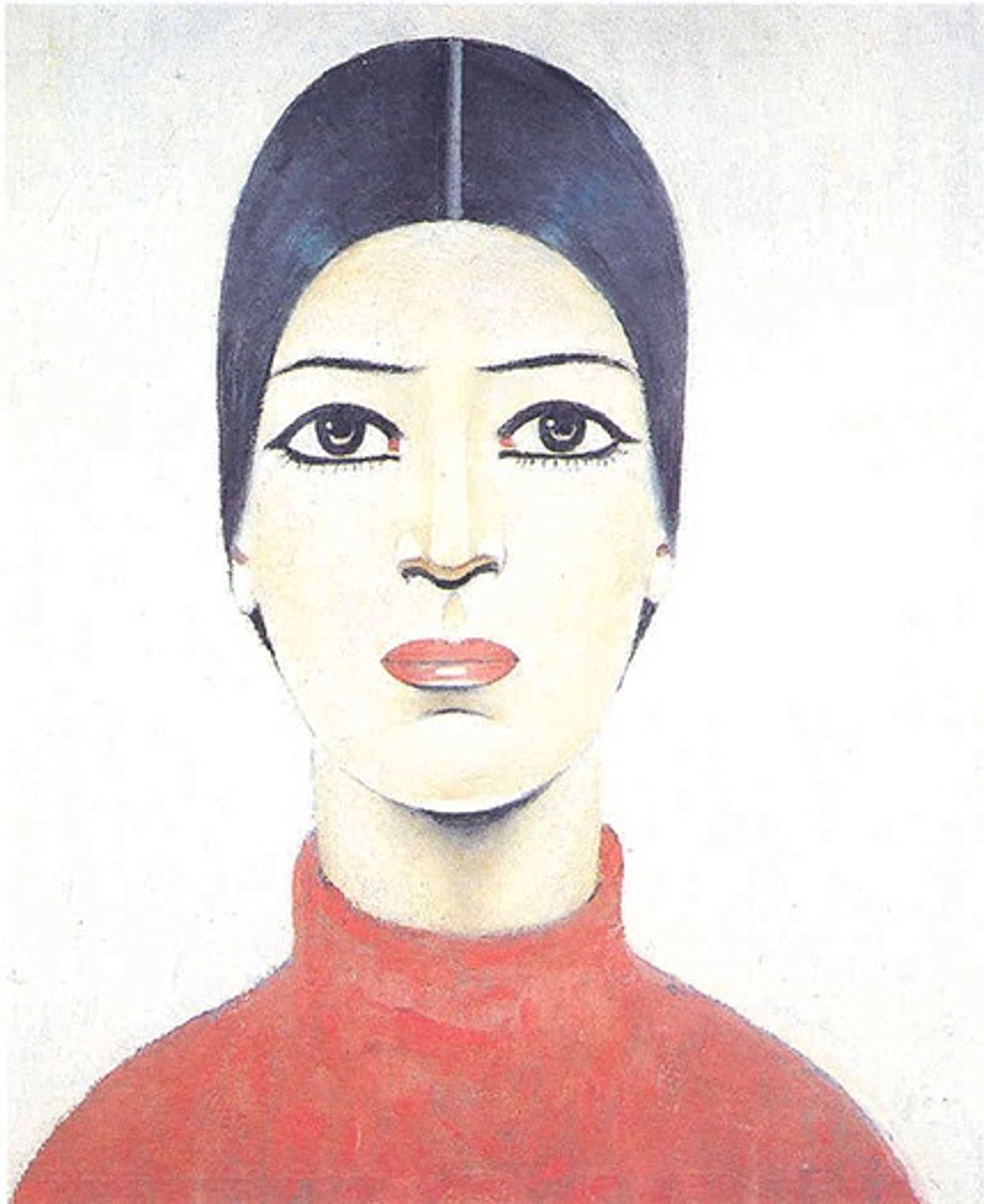 Portrait Of Ann © L. S. Lowry 1957
Portrait Of Ann © L. S. Lowry 1957Portrait of Ann, 1957
Lowry never married or had a girlfriend. His mother died in 1939, when Lowry was 52 years old, but he continued to live alone for the rest of his life. The artist channelled his fantasies of an ideal female companion into his portraits of Ann, an eternally youthful girl with braided black hair and dark eyes.
It is believed that Ann is a combination of teenage girls that Lowry mentored in later life and girls he saw in the streets. Lowry was also a fan and collector of Pre-Raphaelite painter Dante Gabriel Rossetti’s art, claiming “his women are very wonderful” – perhaps Lowry tried to channel Rossetti’s idealised portraits of his muses into his own work.
Beach Scene, 1946
Lowry once said that he “only deal with poverty; always with gloom. You’ll never see a joyous picture of mine”. But from the 1940s, particularly after the Second World War, his pictures became noticeably more light-hearted. Beach Scene from 1946 was one of many works depicting the jubilant post-war mood. Lowry would go on to paint more seaside escapes and also yachting pictures. “I’ve always been fond of the sea. How wonderful it is, yet also how terrible,” Lowry said in later life.
In the 1960s, Lowry branched out of painting and collaborated with London’s Ganymed Press to produce 16 signed limited-edition lithographs, each in a small run of 75, featuring images made exclusively for reproduction. These included beach scenes like Seaside Promenade, The Pavillion and Castle On The Sand, as well as views of daily life. The Ganymed lithographs are now among the most sought-after prints by Lowry collectors because of their rarity. The Tate collection holds 14 of Lowry’s 16 Ganymed lithographs.
Huddersfield, 1965
By 1970, Lowry had established himself as a household name – he was even offered a knighthood in 1968 (which he turned down). In 1976, a few months after Lowry’s death, the Royal Academy of Art in London held a major retrospective of his work. The exhibition attracted more visitors than any other show by a British artist.
Lowry had succeeded in his ambition to “put the industrial scene on the map”. While older artists like Julian Trevelyan and Christopher Nevinson had painted industrial landscapes before him, Lowry was right that none “had done it seriously”, to his level of dedication. His observations of daily life in overlooked towns like Pendlebury and Huddersfield won over collectors and galleries alike. His prints and paintings now regularly exceed their estimates at auction and many are in prestigious UK museums.



